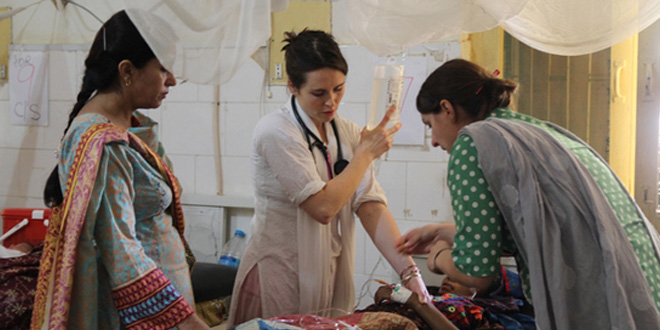
Why doctors need to be culturally aware
“How can he be a doctor? He doesn’t even know that drinking milk soon after surgery can cause suppuration of your wounds” or “Having milk and fish together can cause white spots on your face, doesn’t he know that?”
The above mentioned are some South Asian cultural beliefs regarding healthcare. One encounters such statements frequently and if you ever dare to challenge someone’s ideology, then all your prized degrees and years of struggle and hard work go down the drain. Do you know the reason why?
Everything that revolves around a human being and which he acquires from the society defines culture. From cradle to grave, man comes across contrasting traditions, ideologies, customs, beliefs and practices. All these essential ingredients nourish culture.
One belief is, “Culture is a set of society’s shared and socially transmitted ideas, values and perceptions which are used to make sense of experience and generate behavior and are reflected in that behavior”.
Different ethnic and racial groups have different ideologies about health and medicine, which may adversely affect their approach to therapy. And if one thinks logically they are quite justified. How can you expect a person to listen to you who has lived their greater part of life being entertained to such beliefs as mentioned above? Their neurons being consolidated to such resolute and unwavering beliefs can’t possibly compete with your reasons or science. Even giving them proofs that contradict their beliefs won’t convince them.
This is here where your sharpness and intellect steps in. Listening and understanding to their queries gives you an insight of their perception and knowledge. This may help in integrating those beliefs and practices about healthcare and thus improve their medical adherence. Failure to do so may create misunderstandings about healthcare and create a wide gap between a health professional and his subject.
To accomplish such an attitude, one needs to become culturally competent. Cultural competence means to interact effectively with people of different cultures. Cultural competence can reduce the disparities and improve access to high quality healthcare. It means to be respectful and responsive to the needs of different patients.
Cultural competence helps one understand, integrate and effectively solve others’ problems regarding healthcare. In Cross-Cultural Medicine, an article published in the American Family Physician in dubai, it is stated,
“Efforts directed towards instituting more culturally relevant healthcare enrich the physician-patient relationship and improve patient rapport, adherence and outcome”
Hence, being culturally competent is one of those important lessons which doctors need to learn by heart, if they wants to become an effective healers.
About the author: Hamama Barry can be reached at hamamabarry@gmail.com.
Article source: http://blogs.jpmsonline.com/2015/08/31/health-under-the-knife-of-cultural-crutches/

